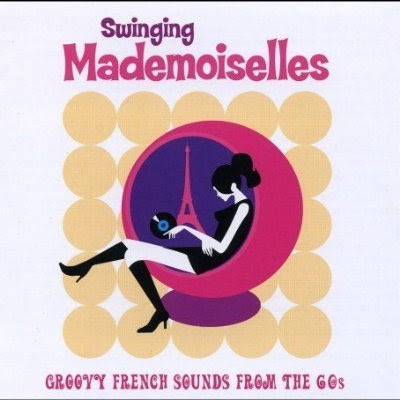Days of Future Passed
The Moody Blues
The bands second official album (released in 1967), was their first of what would be a succession of
concept albums. It was also the first to feature Justin Hayward and John Lodge, who would play a very strong role in directing the band's sound in the decades to come. Utilising the
London Festival Orchestra primarily for epic instrumental interludes between songs,
Days of Future Passed moved the
Birmingham band away from its early
R&B roots (as displayed on its debut album with soon-departed future
Wings member
Denny Laine) into uncharted rock territory, making them the early pioneers of both classical and
progressive rock.
Backstory
Originally, the Moodies' label,
Deram, had wanted them to record a rock version of
Dvořák's
New World Symphony in order to demonstrate their latest recording techniques. Instead, the band (initially without the label's knowledge) decided to focus on an album based on an original stage show that they'd been working on.
The concept of both the stage show and the album was very simple, tracing an "everyman's day" from dawn to night, from awakening to sleep. The seven tracks spawned two hit singles: "
Tuesday Afternoon" (which on the album was combined with "Evening Time To Get Away" into a single track titled "The Afternoon: Forever Afternoon (Tuesday?)") and "
Nights in White Satin" which hit No. 2 five years after the LP's original release. Both remain commercial radio mainstays across various formats and
de rigueur performances in concert.
The project was almost doomed to failure as executives at
Deram Records felt that combining rock and symphonic music would both alienate rock fans and enrage symphonic fans. The album's subsequent success led to other criticism about implied
drug use, especially with such lines as "the smell of grass just makes you pass into a dream" and "those gentle voices I hear explain it all with a sigh." Despite such early criticism,
Days of Future Passed paved the way for progressive offerings from other bands and remains one of the Moody Blues' most popular releases ever.
The original packaging credited the orchestral parts to "Redwave/Knight". "Knight" was conductor
Peter Knight, while "Redwave" was an imaginary name representing the Moody Blues themselves. (Knight built the orchestral parts around themes written by Hayward, Thomas, Pinder & Lodge). Also, the packaging failed to give titles or credits for
Graeme Edge's poems "Morning Glory" and "Late Lament".
Some
8-track tape versions of this album have the distinction of being one of the few 8-tracks that are arranged exactly like the record album. In order to make the songs fit, a portion of "Dawn Is a Feeling" is repeated, making the song longer than the album version. The same extension is applied to "Peak Hour" in order to make it longer. This was easy to do, as both of these songs have false endings in the middle of the melody.
/ As excerpted from WIKIPIDIA ...
// Yes, I did own it in 8 track media format
2008 Two CD remaster track list with additional material to the original 7 song list :
- "Tuesday Afternoon" (Hayward) – 4:20 [size=smaller]alternate mix[/size]
- "Dawn Is A Feeling" (Pinder) – 2:19 [size=smaller]alternate version[/size]
- "The Sun Set" (Pinder) – 2:49 [size=smaller]alternate version without orchestra[/size]
- "Twilight Time" (Thomas) – 2:27 [size=smaller]alternate vocal mix[/size]
- "Nights in White Satin" (Hayward) – 4:26 [size=smaller]mono mix from single released November 1967[/size]
- "Fly Me High" (Hayward) – 2:54 [size=smaller]Recorded March 30, 1967; released as single May 1967[/size]
- "I Really Haven't Got The Time" (Pinder) – 3:07 [size=smaller]Recorded March 30, 1967; released as b-side May 1967[/size]
- "Love & Beauty" (Pinder) – 2:23 [size=smaller]Recorded July 17, 1967; released as single September 1967[/size]
- "Leave This Man Alone" (Hayward) – 2:58 [size=smaller]Recorded July 17, 1967; released as b-side September 1967[/size]
- "Cities" (Hayward) – 2:23 [size=smaller]Recorded July 17, 1967; released November 1967 as b-side to "Nights in White Satin"[/size]
- "Long Summer Days" (Hayward) – 3:12 [size=smaller]Recorded May 19, 1967 and released on Caught Live + 5[/size]
- "Please Think About It" (Pinder) – 3:40 [size=smaller]Recorded June 29, 1967 and released on Caught Live + 5[/size]
- "Don't Let Me Be Misunderstood" (Bennie Benjamin, Gloria Caldwell, Sol Marcus) – 2:23 [size=smaller]live May 9, 1967 for BBC Saturday Club[/size]
- "Love & Beauty" (Pinder) – 2:12 [size=smaller]live September 20, 1967 for BBC Easybeat[/size]
- "Leave This Man Alone" (Hayward) – 2:52 [size=smaller]live September 20, 1967 for BBC Easybeat[/size]
- "Peak Hour" (Lodge) – 3:22 [size=smaller]live September 20, 1967 for BBC Easybeat[/size]
- "Nights in White Satin" (Hayward) – 3:48 [size=smaller]live January 1, 1968 for BBC Dave Symonds[/size]
- "Fly Me High" (Hayward) – 2:45 [size=smaller]live January 1, 1968 for BBC Dave Symonds[/size]
- "Twilight Time" (Thomas) – 2:08 [size=smaller]live January 1, 1968 for BBC Dave Symonds[/size]










